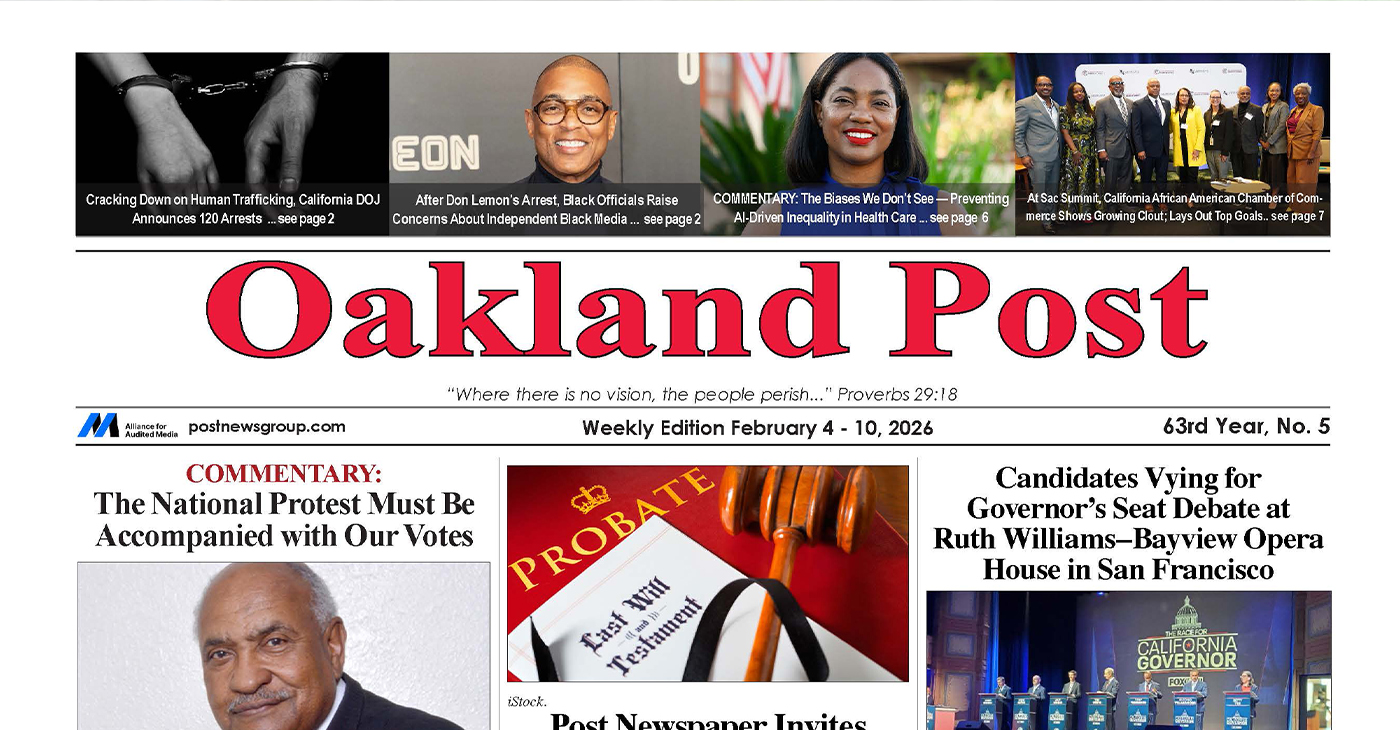Economics
Help Plan Marin’s Future Funding Priorities

Activism
Oakland Post: Week of February 11 = 17, 2026
The printed Weekly Edition of the Oakland Post: Week of – February 11 – 17, 2026
Business
California Launches Study on Mileage Tax to Potentially Replace Gas Tax as Republicans Push Back
Under current law, California depends heavily on revenue from the gas tax to fund roads, highways, and infrastructure, but those revenues are projected to shrink as electric vehicle use grows and overall gasoline consumption drops. The mileage study would look at a “road charge” system where drivers pay based on how many miles they drive, rather than how much gas they buy.
Activism
Oakland Post: Week of February 4 – 10, 2026
The printed Weekly Edition of the Oakland Post: Week of February 4 – 10, 2026
-

 #NNPA BlackPress4 weeks ago
#NNPA BlackPress4 weeks agoOP-ED: The Dream Cannot be Realized Without Financial Freedom
-

 #NNPA BlackPress4 weeks ago
#NNPA BlackPress4 weeks agoFour Stolen Futures: Will H-E-B Do The Right Thing?
-

 Activism2 weeks ago
Activism2 weeks agoLife Expectancy in Marin City, a Black Community, Is 15-17 Years Less than the Rest of Marin County
-

 Activism2 weeks ago
Activism2 weeks agoOakland Post: Week of January 28, 2025 – February 3, 2026
-

 Activism3 weeks ago
Activism3 weeks agoOakland Post: Week of January 21 – 27, 2026
-

 Activism2 weeks ago
Activism2 weeks agoMedi-Cal Cares for You and Your Baby Every Step of the Way
-
Uncategorized2 weeks ago
Homegoing Service for Education Advocate Oscar Wright, 101
-

 Activism1 week ago
Activism1 week agoAfter Don Lemon’s Arrest, Black Officials Raise Concerns About Independent Black Media














































